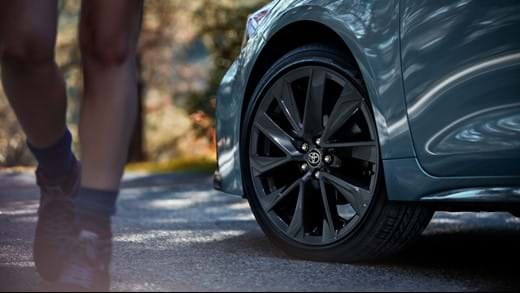First Team Auto Group Brake Service
Expert Brake Service & Repair in Chesapeake, VA
When you visit First Team Auto Group in Chesapeake for expert brake service, you're putting your vehicle's safety in capable hands. Our auto service team is dedicated to ensuring your brakes are in top condition, whether it's a routine inspection, pad or rotor replacement, or topping off brake fluid. With our expertise and commitment to quality service, you can trust that your vehicle will be in optimal condition for the road ahead. Let us take care of your brake needs, so you can drive with confidence and peace of mind.
Drum Brakes vs Disc Brakes
Drum brakes and disc brakes are two common types of braking systems found in vehicles, each with its distinct characteristics. Drum brakes, traditionally found on the rear wheels of older vehicles, feature brake shoes housed inside a round drum. When the brake pedal is pressed, hydraulic pressure forces the brake shoes outward against the drum, causing friction and slowing down the vehicle. On the other hand, disc brakes utilize a flat rotor attached to the wheel hub, with brake pads clamping down on the rotor when the brake pedal is pressed. This clamping action generates friction, slowing the vehicle. Disc brakes offer better heat dissipation and are generally more efficient at stopping the vehicle, especially at higher speeds, while drum brakes are simpler in design and can be more cost-effective to manufacture. However, disc brakes tend to be more susceptible to water and debris, while drum brakes are less affected by external elements. Both systems have their advantages and are commonly used in different vehicle configurations based on factors such as cost, performance, and application.
How Often Should I Change My Brakes?
The frequency of brake changes depends on various factors, including driving habits, vehicle type, and environmental conditions. As a general rule of thumb, brake pads typically need replacement every 30,000 to 70,000 miles, while brake rotors may last longer, usually needing replacement every 70,000 to 100,000 miles. However, these are just guidelines, and it's essential to pay attention to signs of brake wear, such as squealing or grinding noises, vibrations, or longer stopping distances. If you frequently drive in stop-and-go traffic or on hilly terrain, your brakes may wear out more quickly. Regular brake inspections, typically during routine maintenance visits, can help determine the condition of your brakes and whether they need replacement. Ultimately, it's crucial to follow the manufacturer's recommendations outlined in your vehicle's maintenance schedule and consult with a qualified mechanic for personalized advice based on your driving habits and vehicle's condition.
How Often to Change Brake Fluid?
Changing brake fluid is a critical aspect of vehicle maintenance that often gets overlooked. As brake fluid ages, it can absorb moisture from the air, leading to decreased braking performance and potential corrosion within the braking system. Experts generally recommend changing brake fluid every two to three years, regardless of mileage. However, in harsher driving conditions or for vehicles subjected to heavy use, such as towing or frequent stop-and-go driving, more frequent changes may be necessary. Additionally, it's essential to monitor the color and clarity of the brake fluid. If the fluid appears dark or murky, it's a sign that it's time for a change. Regular brake fluid changes help maintain optimal braking performance and extend the life of your vehicle's braking system, ensuring safety and reliability on the road.
